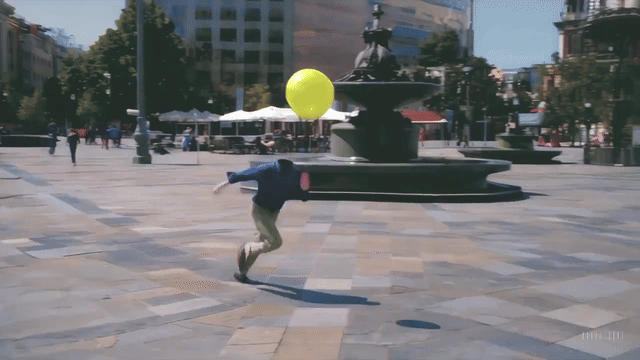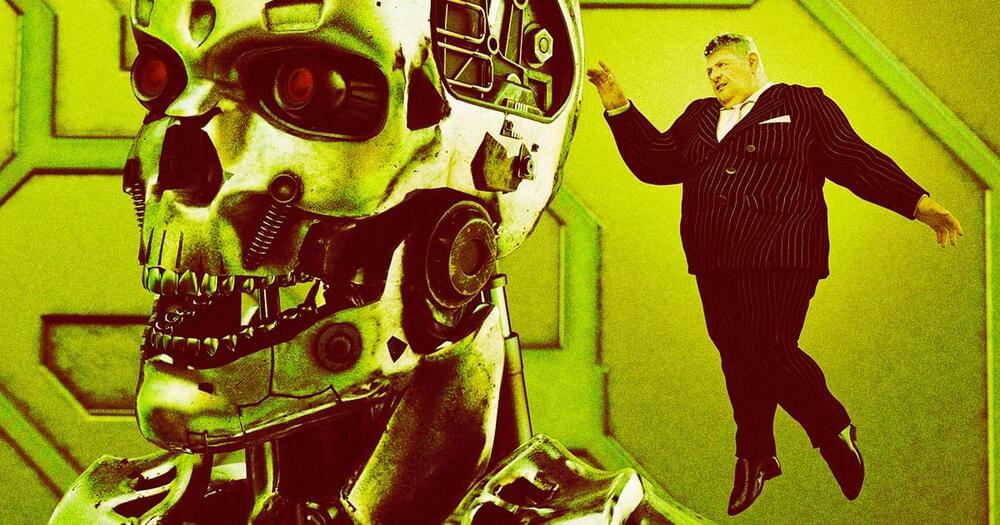OpenAI has made Sora available to a select group of filmmakers and they’ve used it in some creative ways.



Researchers have developed a robot that can anticipate your smile and return it almost instantly. The new work, published as a study in the journal Science Robotics, is intended to help human-looking robots appear more natural. The actual expressions this one makes, however, look anything but.
Named “Emo,” the bot can predict your smile less than a second before it actually appears using cameras lodged into its pupils. Then just as the smile creeps up your face, as shown in an amusing video from New Scientist, Emo grimaces its horrific imitation of one in return, making sure to keep eye contact the entire time.
“I’m a jaded roboticist, but I smile back at this robot,” study coauthor Hod Lipson, at Columbia University, told New Scientist.

A hydrogen fuel-cell passenger train developed by Swiss rail vehicle maker Stadler Rail has achieved a new Guinness World Record, traveling for almost two days around the clock for a distance of 1,741.7 miles.
Efforts to clean up dirty trains are already well underway, with heavy investment in electrifying networks around the world as well as rolling out battery-electric locomotives such as the FLXDrive, the Blues train and the Flirt Akku.
That last example is made by Stadler Rail AG, and managed to achieve a Guinness World Record in 2021 for the longest per-charge battery-only journey of 224 km (~140 miles), on a route between Berlin and Warnemünde during a freezing local winter – not bad for a train that was designed with an operational per-charge range of 80 km.
An automated YouTube stream of an endless AI-generated “Family Guy” show called “AI Peter” has devolved into ear-bruising chaos, Kotaku reports, with some of your favorite characters of the sitcom blurting out gibberish — and screaming at the top of their lungs nonstop.
The stream, which started back in June of last year, relies on audience submissions to come up AI-generated scripts for back-t0-back “episodes” of the beloved animated series.
And, as Kotaku points out, moderation of these paid submissions doesn’t appear to be front of mind. Some users are misusing the generative AI tech to break the unsettling, 3D-animated characters in unusual ways.
Presents Intermittent FastingDr. Joseph Purita presents Intermittent Hypoxia therapy and mitochondrial healthOur founder Bill Faloon provides A New…

1/ Services like HeyGen and arcads.ai let you make “digital avatars” that can talk in sync with their lips, speak different languages, and move and gesture naturally.
2/ The high quality of these AI-made videos makes it hard for even supposed experts to tell fakes from real ones.
Just as AI-generated photos can look very realistic, there are now AI-generated videos that are almost indistinguishable from real video.

AR-Smart glasses: 2029. Will look like just a normal pair of sunglasses. All normal smartphone type features. Built in AI systems. Set up for some VR stuff. An built in earbud / mic, for calls, music, talking to Ai, etc… May need a battery pack, we ll see in 2029.
The smart glasses will soon come with a built-in assistant.
